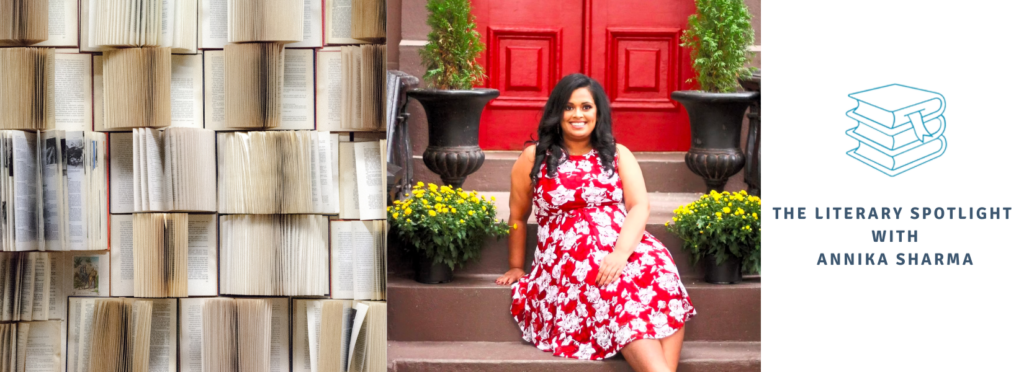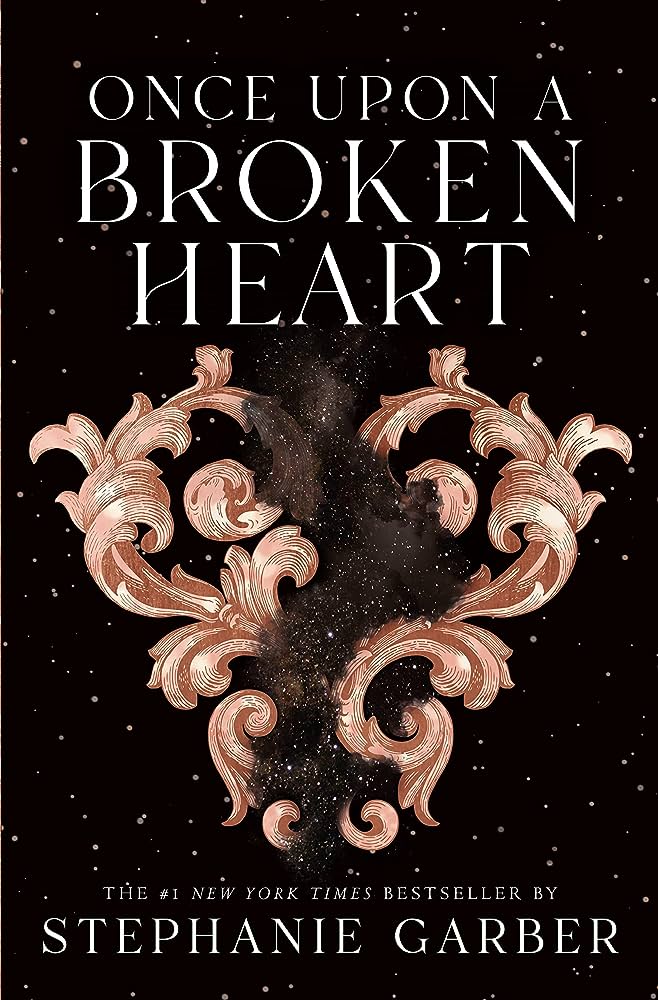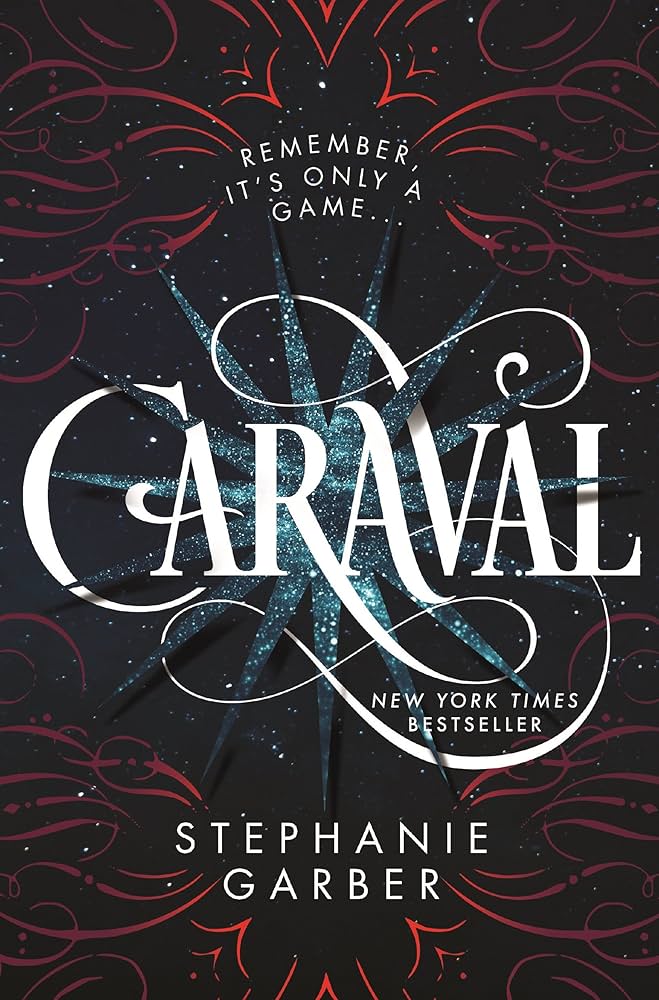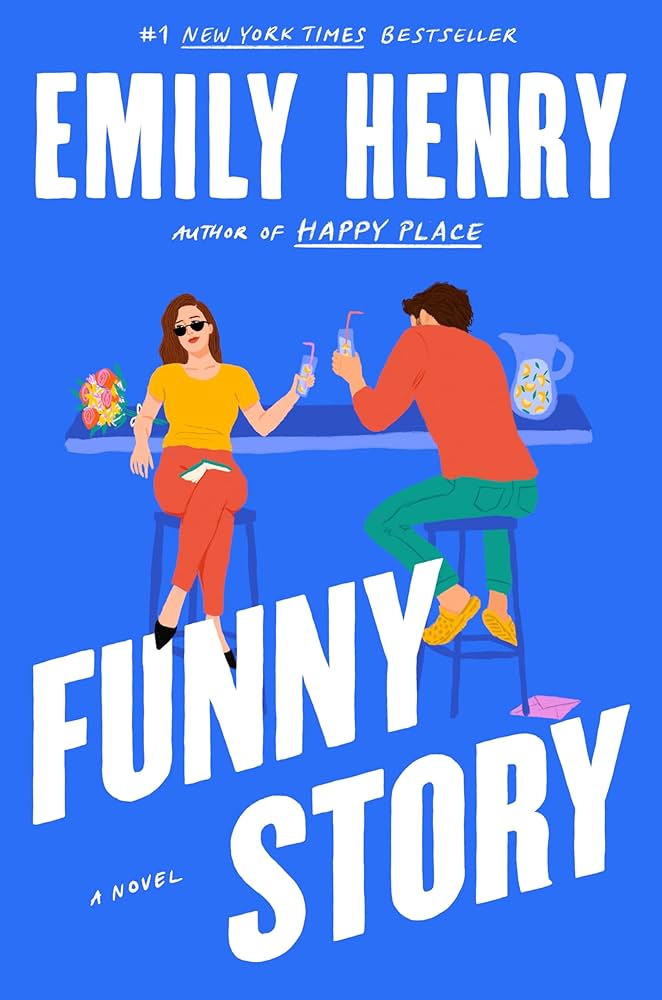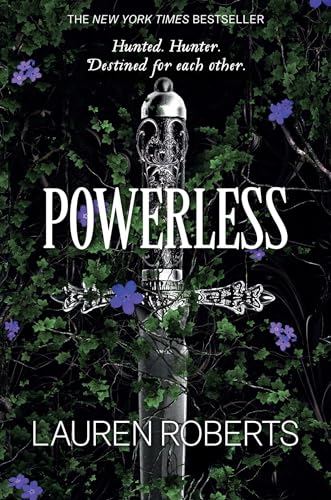Author Interview: The Literary Spotlight with Author Annika Sharma
Today, I am delighted to spotlight Annika Sharma, a vibrant voice in contemporary fiction! Annika isn’t just an author; she’s a cultural weaver, crafting stories that celebrate South Asian experiences with a heartwarming blend of romance and authenticity. From rom-coms that sparkle with wit to middle-grade novels brimming with heart, Annika’s stories resonate deeply, offering readers a chance to see themselves reflected on the page.
What sets Annika apart is her dedication to portraying South Asian characters with depth and joy, challenging stereotypes and offering hope through narratives filled with healthy relationships and relatable struggles. In a world that often overlooks diverse voices, Annika’s work shines as a testament to the power of inclusive storytelling. Whether you’re a lover of insightful romance, seeking stories that celebrate cultural identity, or an aspiring writer looking for guidance, Annika’s journey is sure to inspire.
In this interview, we’ll explore the inner workings of Annika’s creative process, from the initial spark of an idea to the meticulous crafting of characters that feel like old friends. She’ll share her experiences navigating the publishing world as a writer of color, the challenges she’s overcome, and the themes that drive her to create stories that make a difference.
Get ready for an engaging conversation with Annika Sharma—a storyteller who’s not only captivating readers but also paving the way for greater representation in literature. I’m excited for you to discover her unique perspective, her insightful advice for aspiring writers, and her passion for creating stories that foster connection and understanding. Let’s dive in!
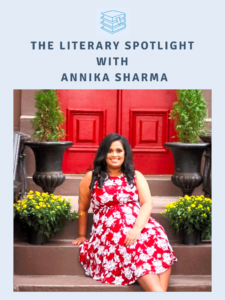
Introduction:
Cyra: Could you please introduce yourself and tell us a bit about your writing background? What inspired you to become a writer, and how did your writing journey begin?
Annika: Hi! I’m Annika Sharma, and I’m the author of South Asian romcoms and middle grade novels. I’ve been a writer for my entire life—mostly starting with angsty journals and poetry in high school, and eventually, I wrote my first manuscript in the summer before graduate school. A year later, I had an agent and a book deal and since then, I’ve released 2 romcoms (with a third on the way) and an upcoming middle grade novel. Words have always been my lifeblood and the way I connect with the world. It’s the way I weave compassion, empathy, understanding, and complexity into my conversations and into my understanding of how the world works…and coming up with characters to make sense of it all has always been a natural fit.
Creative Process:
Cyra: Could you share a glimpse into your creative process? How do you approach developing ideas and turning them into stories? Do you have any specific rituals or habits that help you get into the writing?
Annika: I usually have any number of ideas percolating that could make cool stories, but the stories I follow through on have very clear voices. It’s like the characters are talking to me and they are so loud, I can’t ignore them. That usually lends itself to a chapter (anywhere in the story) and that sparks the rest of the outline and book. I used to be a pantser but I’ve become a plotter over the years because I find it helps me follow a story arc and story beats with more clarity.
I don’t have much of a ritual but I do write better in the morning or late at night, so I try to write during those hours more than any other time.
Writing Influences:
Cyra: Who are some of your favorite authors or literary influences, and how have they shaped your own writing style? Are there any books or works that have had a profound impact on your writing career?
Annika: The first book that shook my world was Tanuja Desai Hidier’s “Born Confused.” It was the first young adult with a South Asian lead character and my life felt so similar to hers—and actually followed an oddly similar trajectory in terms of moving to NYC, finding love, and finding more South Asian culture and voice all at once. My favorite authors are Sonali Dev, Emily Giffin, Jodi Picoult, CW Gortner, and Taylor Jenkins Reid. I love the layers of storytelling and the complexities they weave into their stories to keep readers on their toes. They also have a very lyrical way of writing and it’s something I can relate to.
Overcoming Challenges:
Cyra: What challenges have you faced as a writer, and how did you overcome them? How do you handle writer’s block or periods of self-doubt?
Annika: As a writer of color, there will always be inherent obstacles that are limiting to writers like me. Authors of diverse backgrounds often have to fight for their stories of joy to be told, rather than focusing on stories through a lens of trauma, and I’ve had to learn to speak up when I think my culture or background is being misrepresented, whether it’s a book title or terminology being used.
Writer’s block is something I’ve struggled with much more often in the last couple years. The root has always been that I’ve put the pressure of performing well or an audience’s perception ahead of the story itself, which blocks the story from coming out authentically. I had to take an extended break from writing and focus on stories that spark passion and curiosity in me for a while before I could return to any contracted work to get around the block. I also love doing other creative things like podcasting, writing Substacks or creating content, reading, and traveling to remember why the world is beautiful and why I want to write about it in the first place.
Character Development:
Cyra: How do you approach developing compelling and relatable characters in your stories? Are there any strategies or exercises you use to ensure your characters feel authentic and three-dimensional?
Annika: A writer’s job is to be empathetic and to understand complexities in the human experience. A person may not always react logically or rationally in moments of heightened emotion, for example. Knowing those intricacies and observing the world and the way people react to situations is what feeds into the way I approach writing characters. Asking “What if?” or “What next?” or “Why do they feel that way?” also allows me one more dimension into a character’s mind and lets me translate that to the paper.
Creative Inspiration:
Cyra: Where do you find inspiration for your stories? Are there any specific themes or topics you enjoy exploring in your writing?
Annika: I observe people! Like most writers, I love exploring the layers of relationships—healthy and unhealthy ones. Why do people react a certain way? What behaviors caused it? What have they gone through in their lives that have influenced how they respond to different situations? I really love friend and family relationships and portraying South Asians in particular with healthy dynamics (or redeemable ones) to give people hope.
Personal Reflection:
Cyra: Is there a particular book or project you are most proud of? Could you share the story behind it? What is the most rewarding aspect of being a writer for you?
Annika: Love, Chai has plenty of room for criticism (some of which I genuinely agree with!) but the beauty of that book was that the characters fall in love with NYC…and I was writing it while I was falling in love with the city and my husband at the same time. I had just moved to the city and I was learning so much about myself, my belief system, the way I love and can be loved, and about this very overwhelming city and to translate that into Kiran and Nash’s love story felt really special.
For me, the most rewarding aspect of being a writer is making people in my community feel seen. Hearing that my book made someone’s day or that they loved getting lost in it is the greatest compliment—but when people in my community say that they felt seen, heard, and understood by the characters in my stories and what they’re facing in their worlds, it makes me feel a sense of purpose, which is the greatest honor.
Editing and Revision:
Cyra: How important do you think the editing and revision process is for a writer? Could you share your approach to editing your own work? Do you have any suggestions for writers on how to improve their editing skills?
Annika: It’s CRITICAL. There are no books without editing and revising – which is hard to remember when you’re aspiring to be the next big thing and looking at finished products in stores. But every expert began somewhere and each draft has gone through multiple rounds of polishing before it became a published manuscript.
My editing process is often done while writing. I have friends who write a really clean first draft or two. I have friends who write twenty drafts before they’re content. I tend to edit as I go, and then evaluate the finished product to see if there are major changes I need to make. Like most writers, I hate killing my darlings, but I’ve had to learn to become more succinct and direct with some of my descriptions so they packed a heavier punch.
I would recommend reading books and creating checklists. It helps a lot to use writing exercises to hone your craft. Every writer needs to continue developing their craft and talent in order to be better than their last manuscript.
Publishing and Marketing:
Cyra: What has been your experience with the publishing industry? Any advice for aspiring authors on finding agents or publishers? How do you navigate the world of book marketing and promotion? Any tips for authors looking to build their audience?
Annika: It’s been about 10 years since I found my agent so I’m likely very out of date with advice, but I wrote the story I was passionate about and that’s where I advise everyone to begin. Write… And do your due diligence once an agent offers to make sure they will represent your work the way you want. The publishing industry has been kind overall, but it can also depend on the team behind your books, how much they understand your background (or care to), and what the publisher’s priorities are.
Navigating book marketing and promotion is a book in and of itself! I do think people need to start building a presence on at least one platform of comfort because writing is a business. That’s been the hardest thing to accept and implement for me because I tend to be more private (though I’m fairly extroverted). It takes effort to “sell” myself rather than letting the work speak for me. But the truth is, no one is going to read you if they don’t know you exist, and that’s the unfortunate reality…so my advice is to treat yourself like a business and a business owner and go from there.
Advice for Budding Writers:
Cyra: What advice would you give to aspiring authors who are just starting their writing journey? How do you handle rejection and criticism in the publishing world?
Annika: My advice is always to start writing. No one can tell your story the way you can. And the world needs to hear it. Don’t think about agents, audiences, sales, or promotion until you’ve finished the manuscript (hard as it may be!). Focus on getting the work done so you can take the next steps with power and trust in your craft.
Rejection and criticism are part and parcel of the game. And it does sting! But I’ve learned to separate subjective opinions (i.e. “You suck!”) with constructive criticism that I can implement and be better with (i.e. “This author could have described this community in South Asia better by…”). It’s not the reader’s job to offer the constructive criticism but sometimes, you’re lucky, and you find it to learn from. Eventually, it does start to roll off your back.
Favorite Quote:
Cyra: What’s your favorite quote that keeps you going in life?
Annika: “Some people are just meant to win. Life will delay them. Life will confuse them. But they simply never stop. Eventually, exponential opportunities will collide with their experience. Then, when they do succeed, it’s like it happened overnight. But there were many dark nights and deep down…despite all the stress, pain, and insecurity, they knew.
They always knew.
They were inevitable.”
Future Projects:
Cyra: Could you give us a sneak peek into any upcoming projects or books you’re currently working on? Is there anything else you would like to share with our readers and aspiring writers?
Annika: Yes! The third book in the Chai Masala Club, (currently still untitled), has been turned into my editor and will be focused on Akash. The book should be releasing in 2025 or 2026. I also have a middle grade novel coming out in 2025 about an 11 year-old Bharatnatyam dancer named Jaya, who loses her grandmother/guru and has to learn to navigate loss, parental mental health, therapy, and dance again.
Feel free to follow me on Instagram @annikasharma and don’t ever hesitate to contact me with questions! I love connecting with readers. Also be sure to check out Annika’s website!
